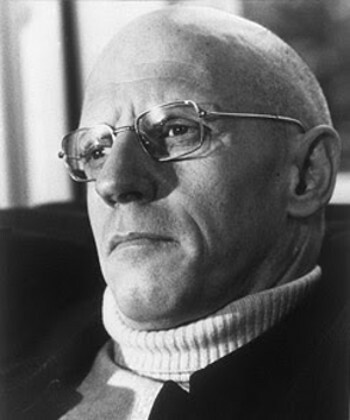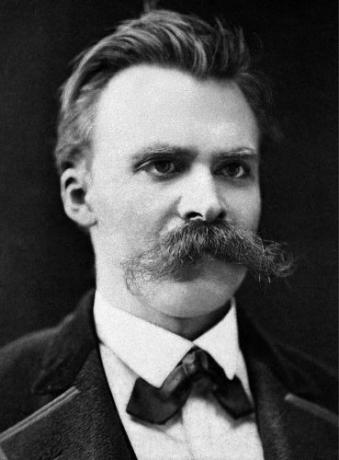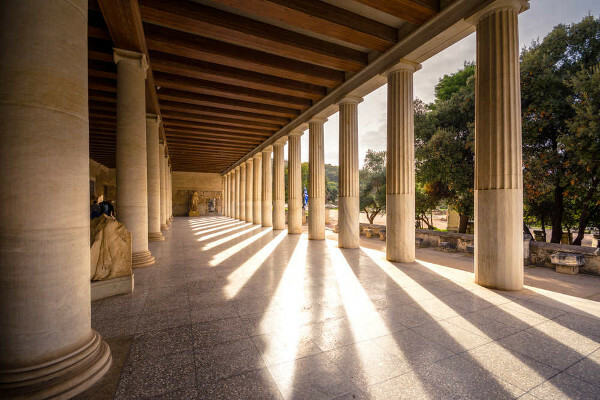Michel Foucault he was a French philosopher, teacher, psychologist and writer. Owner of a unique literary style, Foucault revolutionized the philosophical structures of the 20th century by analyzing them through a new perspective. Deeply influenced by Nietzsche, Marx and Freud, the contemporary philosopher was also influenced by the philosopher and friend Gilles Deleuze, from medicine and psychiatry.
We can split the Foucault's work in threeparts distinct: a production that lasted until the 1960s, in which he does what he called the "archaeology" of the human sciences, literature, writing and thought in general; a second phase, already in the 70s, in which the thinker was concerned with the forms of subjectivity and power, weaving philosophical analyzes through the genealogical method; lastly, the phase in which he wrote self care, as the third published volume of the collection history of sexuality.
Read too: Meet this Brazilian personality who is studied around the world
Biography

Paul-Michel Foucault was born on October 15, 1926, in Poitiers, France. His parents were named Paul Foucault and Anna Malapert. Foucault's father was surgeon and professor of anatomy, and his grandparents (both paternal and maternal) were also surgeons, which shows that medicine he was always present in their education and training. However, the young man became interested in history, which decided the rest of his career.
The interest in philosophy appeared even in Foucault's youth, which led him to an early search for readings in the area. Despite his father's wishes for his son to become a doctor, the young man decided, against his father's will, to study Philosophy, a position supported by his mother, a person with whom the philosopher nurtured a very affectionate relationship. With his father, on the other hand, Foucault did not get along very well.
Foucault moved to Paris in 1945 and began his preparations for entering higher education. At that time, he met the philosopher and professor Jean Hyppolite, who introduced the new student to the thought of Hegel. He entered the École Normale on the rue d'Ulm to study Philosophy in 1946. His introspective personality was accentuated over time at the study center, as the philosopher increasingly refused contact with his colleagues, due to the atmosphere of dispute in the place.
Do not stop now... There's more after the advertising ;)
He tried suicide for the first time in 1948 and was accompanied by constant psychiatric evaluations. One of the causes that led to the philosopher's psychiatric problem was his homosexuality, still in the discovery phase and in difficulty in accepting himself.
In 1948, the philosopher graduated in Philosophy and, in the following year, in psychology. He became a teaching assistant at the University of Lille and completed his course in Pathological Psychology in 1952. The philosopher taught and delivered conferences and speeches at several universities in France, Germany, the United States and Switzerland, including being at the University of São Paulo (USP) in 1965 and 1975.
Foucault also worked as a pathologist psychologist in several psychiatric hospitals and prisons, which provided empirical elements for the constitution of some of his works, such as watch and punish and history of madness.
The publication of The words and things, in 1966, he opened doors for the young professor of Philosophy and Psychology to become known on the world intellectual scene. He gave courses, lectures and conferences, participated in debates and developed a vast philosophical work. In 1968, Foucault, as well as Deleuze, Marcuse, Sartre and so many other distinguished university professors, he became involved with the fightstudent triggered in the month of May of that year in France, which affected educational sectors around the world. At the time, Foucault was teaching in Tunisia.
Soon after, in 1969, the thinker published the archeology of knowledge, book that restored and ended his first phase of thought. In 1970, Foucault was accepted in a selection process to occupy the chair of Jean Hyppolite, at the Collège de France, with the inaugural lecture the order of speech, published in the same year.
In 1975 he published Watch and Punish - the history of violence in prisons. The following year, he published the first volume of the collection history of sexuality, entitled the desire to know. In 1984, he published the last two volumes of the series, which was to contain six volumes, entitled The use of Pleasures and self care. The reason for the interruption of work was the death of the thinker at 57 years of age. His death resulted from complications caused by the AIDS.
Loved by some and hated by others, because of his writings, his visibility in the 70s and his political performance, always focused on the left (but always receiving harsh criticism from thinkers and activists of the left), Foucault was one of the most acclaimed philosophers of the 20th century.
Mainly influenced by philosophers and writers such as Marx, Freud, Bachelard, Lacan, Heidegger, Nietzsche, Blanchot, Sade, Kafka, among others, his type of writing and philosophical method, together with thinkers such as Nietzsche, Deleuze and Derrida, began to be called, by detractors, as post-modern.

In the academic sphere, some classified Foucault as poststructuralist, title that he himself refused. It is a fact that his work, as well as that of so many others, like that of his friend Deleuze, of Sartre, by Beauvoir and, at the beginning of it all, by Nietzsche, broke with the traditional structures of Philosophy made until the nineteenth century, essentially and dogmatically focused on the structured analysis of rationality and its shapes.
Read too: Contemporary Philosophy: Period of Philosophysbusiness that confronts technological advances
Main ideas
As mentioned, Foucault's work can be divided into three periods: the archaeological Foucault, the genealogical Foucault and the last Foucault. The periods present different ideas and themes that the philosopher focused on.
archaeological period
It was marked by a search to establish a study using what he called the "archaeological" method of the structures of the Scienceshuman, in particular from History and Social Sciences. In this period, Philosophy, Linguistics and Literature were also exhaustively examined. The main works of the archaeological period are The words and things and archeology of knowledge.
pedigree
This period was essentially marked by the publication of the works The truth and the legal forms,watch and punish and will to know (the latter as the first volume of history of Sexuality). At that time, the French philosopher began to worry about forms of power and subjectivation in society.
Deeply influenced by his years of clinical psychology in asylums and prisons and by Nietzsche's genealogical method (an intellectual tool adapted and improved by Foucault for his work), the philosopher started to try to study, through a complex reconstructionhistoric and cultural of complex scenarios, the formation of what he called the disciplinary society.
According to the philosopher, humanity would be organized in different ways and at different times through the way it deals politically with elements related to life (biopolitics). Among these modes of organization, the philosopher found, between modern societies and contemporary society, a crucial difference, especially the mode of political dominance in the former monarchies and political systems. recent. The thinker characterized these differences as microphysical and macrophysical relationships, described below:
macrophysics of power: O power existed and was exercised on a large scale (macro) through the monarch, who was solely responsible for to apply, through fear, the activity necessary to control the disparate wills through their own will.
microphysics of power: related to power exercised by what he called the disciplinary society, it was a network of small powers, exercised in small social nuclei through the application of disciplinary techniques that would docile people's bodies, training them for the activities diverse. The school, the church, the barracks, the factory, the jail and the hospital would be disciplinary institutions that apply the discipline of bodies, while the leaders of small power nuclei, like the parents in the patriarchal family, exert some kind of microphysical power over those subjected to he.
Final period or the last Foucault
Nietzsche appears once more in Foucault's theory, this time with more force. The French philosopher used the theories of his German influencer, especially in his analysis of the ancient Greeks, to immerse himself in Greek culture in the use of pleasures and unravel the way in which Greek society viewed the sexuality.
In this last period, a new ethical way also appeared and gave the name, “Take care of yourself”, to his last published writing. The last two volumes of History of Sexuality, in addition to academic articles, they make up the entirety of the work published in the last Foucault.
Read too: Byung-Chul Han - contemporary philosopher whose work was influenced by Foucault
Works by Michel Foucault
history of madness: using the archaeological method, the philosopher sought to understand how madness was treated and understood as did psychiatrists and asylums until the 20th century. The book raised a long overdue debate about the cruelty of asylums and the need for a deeper understanding of psychiatric disorders as, often, social disorders.
The words and things: Foucault understands that what we said to be "the man" has recently emerged in the realm of knowledge. In this book, he analyzes how the sciences, especially the humanities, are constituted and modified, becoming other sciences or other ways of thinking, between the 16th and 18th centuries, starting, initially, from the language.
The Archeology of Knowledge: book that is a response to the criticisms of the previous book and explains, in more detail, the so-called archaeological method of understanding the human sciences.
Watch and punish: book on the history of disciplinary institutions, punishment, the disciplinary power of the body and prisons as forms of application of discipline par excellence. It is in this work that the philosopher presents the panopticon, proposed by Jehremy Bentham in the 18th century, relating it to the constant surveillance of our society, and makes a comparison between the prison and other disciplinary institutions, such as the school, the factory and the hospital.
history of sexuality: the book series, when announced, promised a total of six publications. However, the interruption of the collection occurred when it was half full due to Foucault's early death. The volumes of this work attest to the philosopher's shift in focus, from a genealogical method in understanding the forms of power to a thought aimed at understanding biopolitical issues related to the body and the relationship of people with subjectivities through the question corporeal.
by Francisco Porfirio
Philosophy teacher

